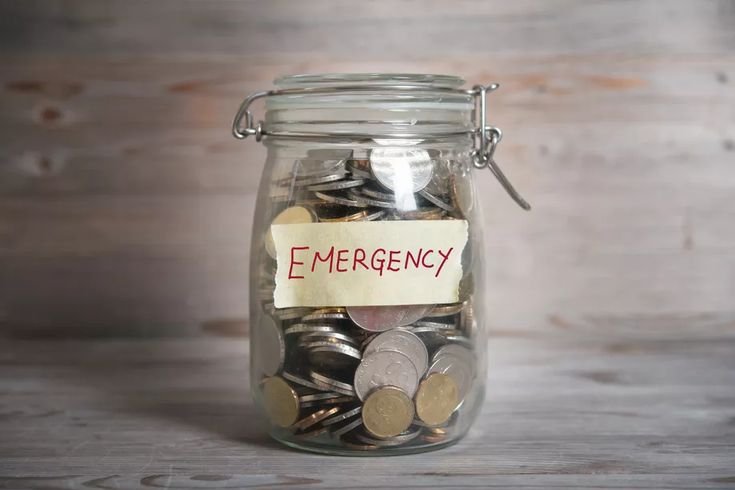
Economic uncertainty can come from various sources, such as recessions, market volatility, global events, or personal financial crises. Managing your finances effectively during these times is crucial to maintaining stability and reducing stress. Creating a solid budget is one of the most effective ways to navigate economic uncertainty. This article will tell you comprehensive strategies to help you budget wisely and secure your financial future, even in unpredictable times.
The first step in budgeting during economic uncertainty is thoroughly assessing your current financial situation. Start by taking an inventory of your income sources and expenses. Make a detailed list of all your income, including your salary, freelance work, investments, and other sources. Then, track your costs meticulously, categorizing them into essentials like housing, utilities, and groceries and non-essentials like dining out, entertainment, and subscriptions. This clear picture of your finances will help you identify areas where you can cut back and reallocate resources more effectively.

Once you have a clear understanding of your finances, it’s paramount to prioritize your spending. Focus on housing, utilities, food, healthcare, and transportation needs. These expenses must be covered to maintain a basic standard of living. During economic uncertainty, it may be necessary to make sacrifices in non-essential spending areas. This might mean cutting back on dining out, canceling or pausing subscription services, and postponing significant purchases. Prioritizing your spending ensures you have the essentials covered and can allocate surplus funds toward savings or debt repayment.
Building an emergency fund is another critical component of budgeting during economic uncertainty. An emergency fund acts as a financial security net, giving a protector to fall back on in case of unpredicted expenses such as medical emergencies, car repairs, or job loss. Aim to save at least three to six months’ living expenses in your emergency fund. Start by laying aside a tiny portion of your monthly income and gradually increase it as you become more comfortable with your budgeting. A robust emergency fund can give peace of mind and financial security in uncertain times.


Reducing debt is also essential when budgeting during economic uncertainty. High debt levels can strain your finances, especially if your income becomes unstable. Focus on paying down high-interest debt first, like credit card balances. This can free up more of your income for other expenses and savings. Consider policies such as the debt snowball method, where you get results from the smallest debts first, or the debt avalanche method, where you gear the higher interest rates first. Both strategies can help you reduce debt and improve financial stability.
Another effective strategy is to increase your income. During economic uncertainty, relying on a single source of income can be a risky and challenging task to set aside some amount for emergency funds. Look for new and unique opportunities to diversify your income streams. This could involve taking on a part-time job, freelancing, or starting a side business. Additionally, consider investing in your skills and education to enhance your employability and potential for higher earnings. Diversifying your income provides financial security and gives you more flexibility to handle unexpected financial challenges.
Investing smartly is another vital aspect of managing all finances during economic uncertainty. While the stock market can be volatile, commemorated, it has also provided an abiding growth. Broad your investments across different asset classes to spread the risk. Consider consulting with a financial advisor to make an investment idea that aligns with your risk tolerance and financial goals. Maintaining an abiding perspective and avoiding panic selling during market downturns can help you navigate through periods of economic instability.
Practicing frugality is a valuable mindset during uncertain times. Look for ways to decrease expenses without significantly impacting your quality of life. This might include cooking at home instead of eating out, shopping for generic brands, using public transportation, spending less, and entertainment options. Frugality is not about depriving yourself but about making cerebral choices to spend less and save more. Over time, these small savings can add up and significantly improve your financial resilience.
Another essential strategy is to stay informed about economic conditions and adjust your budget accordingly. Keep an eye on economic indicators such as employment, inflation, and interest rates. Understanding these elements can inform you of expenses and help you make informed spending, saving, and investing decisions. Additionally, staying informed about government programs and benefits can provide additional resources during tough times. For example, during economic downturns, governments often offer relief programs such as unemployment benefits, tax breaks, and stimulus packages that can provide temporary financial support.

Reviewing and adjusting your budget regularly is the best way to ensure it remains effective. Economic conditions can change rapidly, and your budget should reflect these changes. Take some time to review your income, expenses, and financial goals monthly. Make adjustments as necessary to stay on track. For instance, if you receive a pay cut or lose your job, you may need to tighten your budget and prioritize essential expenses even more. Conversely, consider increasing your savings and investments if your financial situation improves.
Maintaining a praising and constructive mindset is crucial when navigating through economic uncertainty. Financial stress can affect your health, whether mentally or emotionally. Stay focused on your abiding goals, and remember that economic downturns are often temporary. Have a practice about self-care and seek support from friends, family, or financial professionals. A positive mindset can always help you stay motivated and resilient, making it easier to stick to your budget and financial plan.

Conclusion
In conclusion, budgeting during economic uncertainty requires a proactive and flexible approach. By thoroughly assessing your financial situation, prioritizing essential spending, building an emergency fund, reducing debt, increasing income, investing wisely, practicing frugality, staying informed, regularly reviewing your budget, and maintaining a positive mindset, you can navigate unpredictable times with more excellent financial stability and confidence. These ideas will ultimately help you manage your finances effectively and position you for long-term economic success.

Leave a Reply